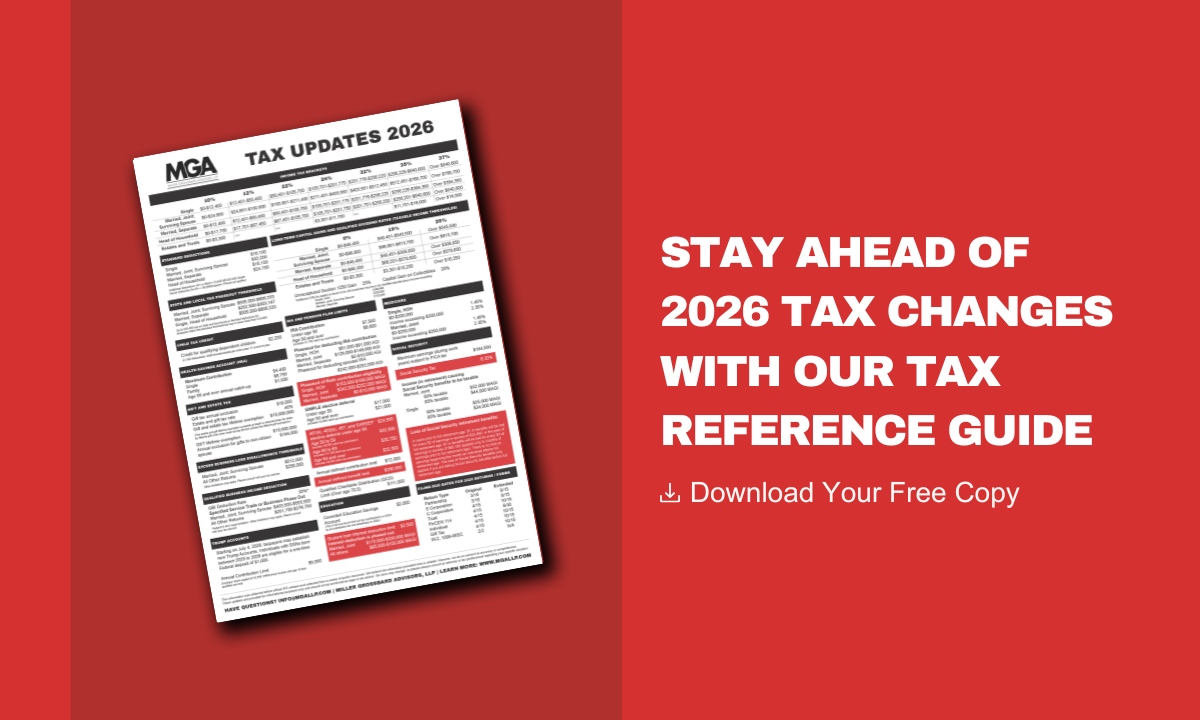As the days in 2020 start dwindling, we want to make sure you are taking advantage of a few year-end tax planning strategies that are on the table. Sure, there are the typical year-end strategies to consider, but we want to talk about the unique ones that are only in play for 2020.
With the CARES Act and presidential election this year, there are a few opportunities to capitalize on now. Here are the top three tactics we are thinking about and sharing with our clients as the year wraps up.
Act Now: Tax-Saving Moves to Consider before 12/31/2020
1. Defer a portion of your property taxes to 2021.Currently, you can only deduct $10k in state and local taxes, which could be property and/or state income taxes. President-elect Biden and some Congress members have already discussed possibly changing this rule in the future, allowing more than $10k in state taxes as an itemized deduction.
Let’s look at Harris County property taxes as an example. They are not due until January 31, 2021. Therefore, we suggest paying $10k this year because that’s all you are allowed to deduct under the current law. Then, you can pay the rest in 2021, when more than $10k may be allowed. It is possible that the $10k limit is not expanded in 2021, but either way, this move will not hurt you.
2. Consider a Roth IRA conversion.If you are a business owner and lost some income during the pandemic this year, now might be a great time to convert your traditional individual retirement account to a Roth IRA.
In a traditional IRA, you put money in pre-tax, and you pay ordinary income tax on that money when you pull it out later in life. Roth IRAs are different in the sense that you pay taxes on the money upfront, and you don’t have to pay income tax when you pull it out down the road. Individuals are allowed to convert their traditional IRAs into Roth IRAs by paying ordinary income tax at their current rate on the value of the IRA they convert to a Roth. So, that means if you had a significant business loss this year and your account values are suffering, now might be the best time to convert these dollars (at a very low rate or possibly even no tax if you have a significant NOL from business operations).
Also, keep in mind that you aren’t required to convert all of it. If you can only afford to pay taxes on a small portion of it, do that instead. This conversion of a traditional to a Roth IRA must be done in 2020, so if this is something you want to do, reach out to your financial advisor where your IRA is held.
3. Consider what expenses you submit on your PPP forgiveness application. Also, there’s no reason to be in a hurry to apply.Based on current IRS guidance, it does not matter whether you rush to apply for forgiveness in 2020 or wait until the new year. If you expect your PPP loan to be forgiven, deductions are not allowed in 2020, regardless of when the actual forgiveness is granted.
So if you spent all of your PPP funds on paying salaries, you do not get to deduct that amount and should be including that amount as income for year-end projections (based on current guidance). However, as we write this article, there are current Senate and House bills that specifically say the deductions would be allowed (but again, remember, nothing is certain until Congress can agree and the President signs it into law).
There are different tax benefits that look at your expenses to take into consideration, though. The pass-through deduction (199A) implemented through the Tax Cuts and Jobs and Acts of 2017 is a perfect example, as it is based on salaries. By using all your PPP funds on wages (instead of rent, utilities, or other qualified categories) and submitting your loan application as such, you could be reducing other possible tax benefits. There is still so much uncertainty with this hastily-crafted law, and we are awaiting further guidance.
Long story short, the IRS has not stated how this change will affect other tax provisions. Our recommendation is to hold off on applying for forgiveness until 2021.
Need a Hand? We’ve Got You
If you need a hand navigating these last couple of weeks of 2020, please reach out to us. We realize this year is unique, creating unique planning opportunities along the way. If any of these options make sense for you, we encourage you not to wait and act now.
As always, we are here to make the complex simple. If we don’t hear from you before the end of the year, we hope you and yours have a safe and healthy holiday — and your team at MGA is wishing you a much better 2021!
.png?width=191&name=mgalogofinal-01%20(3).png)





